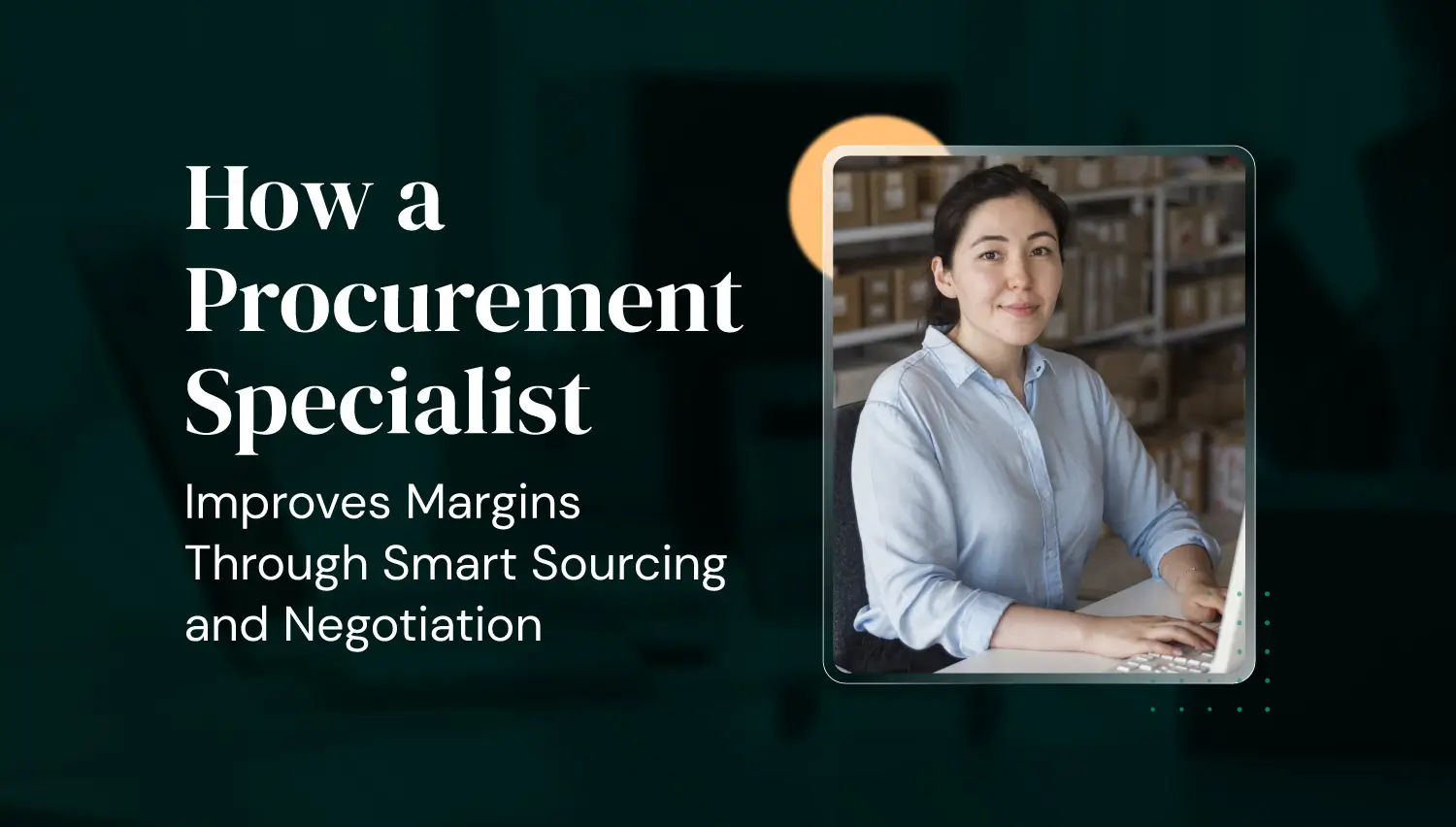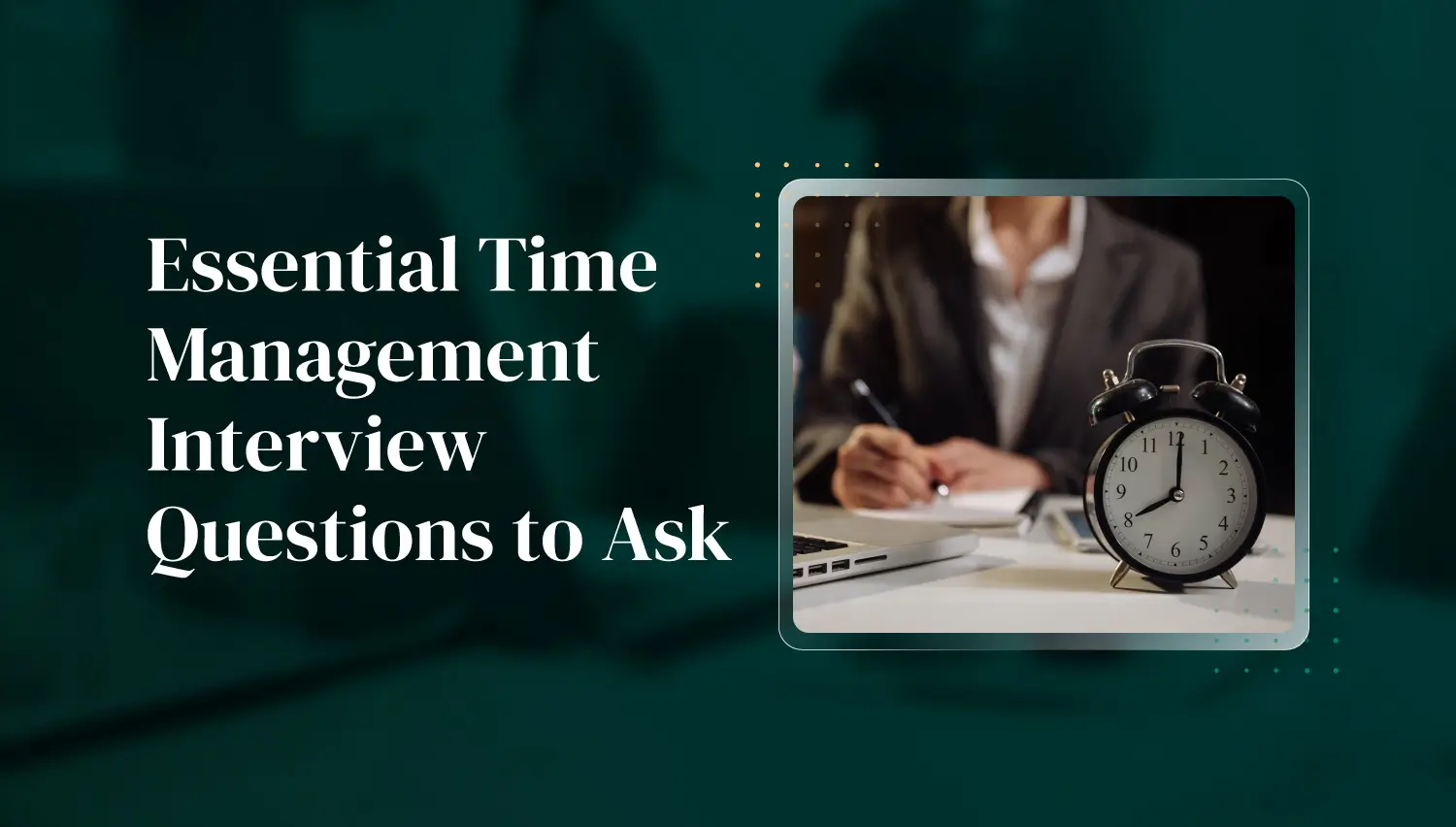I once worked with a mid-market electronics manufacturer that was constantly battling thin margins. Their procurement team was buried in reactive purchasing, chasing quotes, managing backorders, and negotiating one-off deals to keep production moving. On paper, the spend looked optimized; they were getting discounts and pushing suppliers for lower prices. But when we analyzed their sourcing patterns, we found inefficiencies hiding in plain sight: redundant vendors, inconsistent contract terms, and poorly timed orders that spiked freight costs.
We brought in a procurement specialist with deep category experience and a data-first mindset. Within months, she’d consolidated the supplier base by 30%, restructured payment terms, and implemented a rolling forecast tied to production schedules. The result was nearly half a million dollars in annual savings, and just as importantly, a predictable cash flow.
That’s the real power of strategic procurement. A great procurement specialist thinks in terms of total cost of ownership, risk mitigation, and long-term value creation. They align sourcing with strategy, negotiate with foresight, and find efficiencies that ripple through every department. In this piece, I’ll break down exactly how they do it and why their impact goes far beyond the purchasing line.
What a Procurement Specialist Actually Does
Source Products and Services at Competitive Prices
Procurement specialists start where most companies underestimate the effort: strategic sourcing. Instead of defaulting to existing vendors or relying on long-standing relationships, they build a structured process for comparing suppliers, evaluating performance, and assessing risk. Their goal isn’t just to find the lowest price but to identify the best total value, balancing cost, quality, reliability, and long-term scalability.
They benchmark suppliers against market rates, track commodity price trends, and use spend analysis tools to uncover savings opportunities. The best specialists know that “competitive” doesn’t mean “cheap.” It means sustainable pricing that protects margins without sacrificing quality or delivery consistency.
Request Quotes and Evaluate Supplier Proposals
In a mature procurement function, the RFQ (request for quote) process becomes a decision-making framework, not just paperwork. Procurement specialists issue detailed RFQs that clarify specifications, quantities, delivery timelines, and compliance requirements. They then evaluate proposals using a scorecard approach. Price, lead time, service history, and risk exposure all weighed together.
A structured evaluation process helps companies avoid the common trap of choosing the lowest bidder who later under delivers. The specialist ensures transparency and comparability so every supplier competes on a level playing field, and leadership can make informed, defensible choices.
Issue Purchase Orders and Manage Approvals
Once the supplier is selected, precision matters. Procurement specialists create purchase orders that clearly reflect negotiated terms, quantities, and pricing. They also maintain approval workflows that align with company policy, so no order moves forward without proper authorization.
This isn’t bureaucracy for its own sake. It’s internal control. Tight approval management prevents duplicate orders, over-purchasing, and budget overruns. In a fast-moving business, this structure keeps spending disciplined without slowing operations.
Monitor Delivery Schedules to Ensure On-Time Fulfillment
Every delayed shipment carries downstream costs. Idle production lines, frustrated customers, or emergency freight charges. Procurement specialists mitigate these risks by tracking delivery timelines and supplier performance in real time.
They maintain close communication with vendors, flag potential delays early, and adjust purchase orders or schedules before disruptions occur. In high-volume or global supply chains, they often use procurement software integrated with logistics tracking to keep fulfillment predictable and transparent.
.webp)
Negotiate Favorable Terms and Conditions with Suppliers
Negotiation is where procurement earns its reputation as a margin driver. A skilled specialist understands that leverage is about preparation, not volume alone. They research supplier cost structures, understand market pressures, and come to the table with clear objectives: extended payment terms, volume-based discounts, or improved warranty conditions.
Effective negotiators structure agreements that create mutual value and strengthen supplier relationships over time. Done right, negotiation becomes an ongoing dialogue that improves flexibility, stability, and cost efficiency year after year.
Maintain Accurate Procurement Records and Documentation
Compliance and audit readiness live or die in procurement documentation. Specialists keep detailed records of bids, contracts, invoices, and correspondence. This accuracy supports transparency, protects against disputes, and provides leadership with visibility into spend patterns.
Strong documentation also simplifies financial reporting and vendor management. Making it easier to measure performance and identify where supplier relationships are adding or eroding value.
Conduct Market Research for Better Purchasing Decisions
A top procurement professional operates with one eye on the market. They track price movements, emerging suppliers, and geopolitical or regulatory shifts that can impact sourcing costs. Through this research, they can predict price fluctuations and time major purchases for maximum advantage.
For example, when energy prices surge or raw material costs spike, proactive market intelligence allows procurement to lock in contracts or hedge exposure before the increase hits the bottom line.
Manage Procurement Budgets to Reduce Unnecessary Expenses
Procurement specialists sit at the intersection of cost control and operational enablement. They work closely with finance to monitor spend against budget, flagging deviations before they become overspending.
By consolidating vendor contracts, eliminating redundant purchases, and standardizing materials where possible, they deliver direct savings. In many organizations, procurement is one of the few departments that consistently identifies new efficiencies after the budget is set. Turning cost control into a continuous improvement exercise.
Coordinate with Inventory Teams to Maintain Stock Levels
Procurement isn’t an island. It’s tightly linked to inventory management and production planning. Specialists coordinate with these teams to ensure stock levels align with real demand, not outdated forecasts.
They analyze consumption rates, seasonality, and production schedules to balance the risks of overstocking and stockouts. This cross-department coordination keeps cash flowing and operations smooth, a critical advantage in industries where every day of downtime cuts into profit.
Recommend Improvements to Purchasing Strategies
Over time, procurement specialists evolve from transactional buyers to strategic partners. They analyze spend data, supplier performance, and internal workflows to identify where purchasing strategies can be modernized.
That might mean adopting e-procurement platforms, centralizing vendor management, or diversifying supplier bases to reduce dependency. The best specialists continuously refine sourcing processes, ensuring that every purchasing decision aligns with both operational goals and margin improvement targets.
Each of these actions compounds over time. Together, they form the foundation of procurement as a profit lever, not just a cost-control function.
How Procurement Specialists Drive Long-Term Margin Gains
A good procurement specialist saves money. A great one creates a margin that compounds over time. Their work ripples through every layer of the business. Pricing, cash flow, operations, and even customer experience. The most impactful gains rarely come from a single negotiation but from a systematic way of thinking about value.
Focus on Total Cost of Ownership
The lowest sticker price doesn’t always equal the best deal. Skilled specialists evaluate suppliers based on the total cost of ownership. Transportation, warranty coverage, lead time, and service reliability. They see the full picture of cost, not just what’s printed on an invoice.
Build Supplier Partnerships, Not Just Vendor Lists
Procurement excellence depends on long-term collaboration. When specialists cultivate supplier relationships built on data sharing and transparency, they gain early access to innovation, priority in tight markets, and opportunities to co-develop efficiencies. These relationships consistently return more than transactional buying ever could.
Use Data to Expose Inefficiency
Procurement data tells the truth about how a company spends. Specialists leverage spend analytics to identify duplicate vendors, fragmented purchasing, and underused contracts. Once those inefficiencies are visible, it becomes possible to reclaim wasted spend and redirect it into higher-value priorities.
Improve Cash Flow Through Smarter Terms
Procurement’s role in cash flow management is often underestimated. By negotiating extended payment terms, bulk-purchase rebates, or staggered delivery schedules, specialists can free up significant working capital without cutting into supplier trust.
Mitigate Risk Before It Costs You Margin
Supply chain shocks, regulatory changes, and vendor instability can erode profit faster than pricing errors. Procurement specialists map risk across the supply chain and build contingencies: secondary suppliers, diversified sourcing, and flexible contracts. In an era of volatility, this foresight protects both profit and reputation.
When these elements work together, procurement stops being reactive cost control and becomes a forward-looking function that quietly builds margin protection into the DNA of the business.
Building a Procurement Function That Delivers ROI
Hiring a procurement specialist is only half the equation. The other half is creating an environment where they can drive results. Clear objectives, good data, and support from leadership. Companies that treat procurement as strategic infrastructure see faster returns and stronger operational control.
Set Goals That Connect to Business Performance
Procurement KPIs should tie directly to measurable business outcomes. Gross margin, supplier reliability, working capital efficiency, and cycle-time reduction. When metrics reflect impact rather than activity, procurement becomes part of the leadership conversation, not just the back-office workflow.
.webp)
Involve Procurement Early in Planning
When specialists are looped into budget or product planning early, they can forecast demand, negotiate long-term agreements, and prevent reactive purchasing. I’ve seen teams cut 10% or more in spend simply by shifting their procurement input upstream.
Leverage Technology to Unlock Visibility
Even lean organizations benefit from lightweight procurement tools. E-sourcing, spend analysis, and contract management platforms eliminate guesswork, centralize vendor data, and give leadership instant clarity on where money flows. That visibility turns procurement from transactional to predictive.
Develop Supplier Relationships with Intention
Cost savings are important, but supplier partnerships drive stability. By building mutual trust and long-term incentives, procurement specialists can secure consistent quality and service, often at better overall value than short-term bidding ever achieves.
Standardize Processes Without Stifling Agility
Strong governance doesn’t have to mean bureaucracy. Specialists balance clear policies (spend thresholds, approval hierarchies, renewal reminders) with the flexibility to move fast when timing matters. The result is a structure that supports growth instead of slowing it.
Measure Impact Beyond Savings
The most effective procurement teams report not just what they saved, but what they enabled: faster delivery, reduced downtime, better supplier performance, and improved compliance. These are the metrics that define procurement’s real ROI.
Build Internal Alignment
Procurement functions best when departments see it as a value-creation partner. Communication, through dashboards, updates, and quick feedback loops, builds trust and accelerates the adoption of procurement-led initiatives.
Empowered with the right systems, relationships, and mandate, procurement becomes an engine of operational excellence that pays for itself many times over.
Turning Procurement Into a Competitive Edge
Procurement is often the quietest function in a company, but it’s also one of the most powerful. A skilled procurement specialist doesn’t just negotiate better deals; they engineer how the business spends, saves, and scales. They protect margins when markets tighten and free up cash when opportunity knocks.
The companies that understand this invest early in procurement talent. They know every supplier contract, payment term, and sourcing decision can strengthen (or weaken) their competitive position.
That’s where Somewhere comes in. We help companies build procurement capability that drives measurable results. Whether you’re hiring your first procurement specialist or scaling a global sourcing function, our team connects you with professionals who think strategically, negotiate intelligently, and deliver profit that lasts.
Fill out the contact form below to discover how the right procurement hire can turn your purchasing function into a true growth advantage.









.jpeg)
%20(1).webp)



